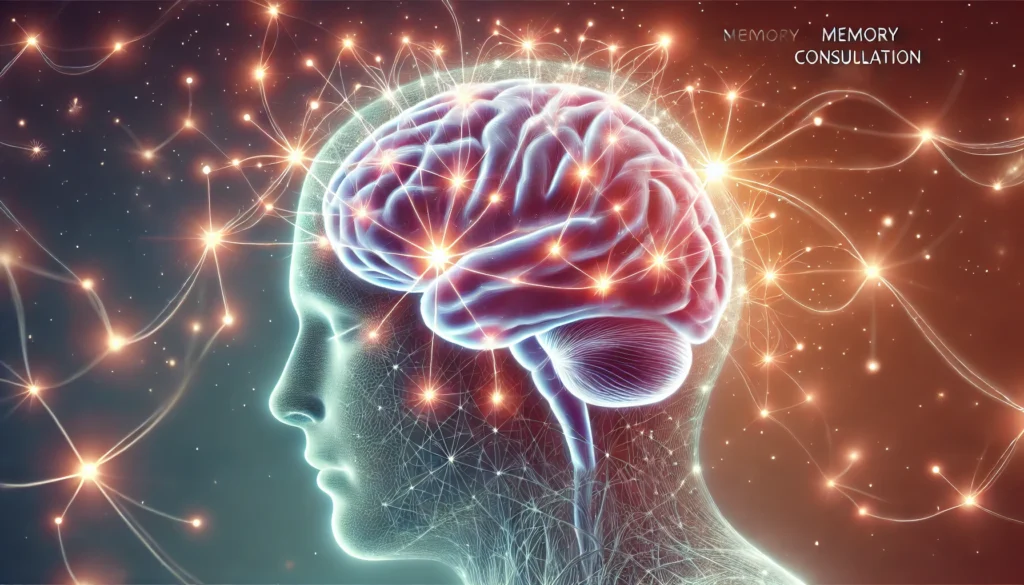In the realm of health and wellness, sleep often stands as a cornerstone for optimal functioning. Yet, while many of us understand the importance of a good night’s sleep, the intricacies of sleep processes remain elusive. One such process is sleep consolidation, a concept that delves into the efficiency and effectiveness of our sleep cycles. This article aims to unpack the significance of sleep consolidation, its impact on memory consolidation, and how understanding this process can lead to better rest and overall well-being.
You may also like: The Connection Between Sleep and Memory
What is Sleep Consolidation?
At its core, sleep consolidation refers to the ability of the body to streamline sleep cycles, minimizing interruptions and enhancing the quality of sleep. This process is crucial for ensuring that the time spent asleep is as restorative and beneficial as possible.
The Mechanics of Sleep Consolidation
Sleep consolidation involves the transition between various sleep stages, primarily focusing on achieving longer durations of deep sleep and REM sleep with minimal awakenings. This streamlined process ensures that the sleep architecture remains intact, allowing the body to undergo vital restorative processes. Understanding these mechanics involves recognizing the role of circadian rhythms and sleep pressure in guiding the consolidation process.
Importance in Daily Function
The significance of sleep consolidation extends beyond mere restfulness. It directly influences daytime alertness and cognitive performance. A well-consolidated sleep pattern can lead to improved concentration, faster reaction times, and enhanced mood stability. These benefits underscore the importance of prioritizing sleep consolidation in daily routines.
Biological Underpinnings
The biological mechanisms that underpin sleep consolidation involve a complex interplay of hormones, neurotransmitters, and brain regions. Melatonin, often referred to as the sleep hormone, plays a pivotal role in regulating the sleep-wake cycle. Additionally, neurotransmitters like serotonin and GABA are crucial for facilitating the transition between sleep stages, ensuring a smooth and uninterrupted sleep experience.
Memory Consolidation and Sleep
A significant aspect of sleep consolidation is its relationship with memory consolidation. The consolidation theory of sleep posits that sleep plays a critical role in stabilizing and integrating new memories. During sleep, particularly in the REM (Rapid Eye Movement) and deep sleep stages, the brain processes and stores information acquired during the day, strengthening neural connections and enhancing recall.
Role of REM and Deep Sleep
REM sleep is often associated with dreaming and is crucial for emotional processing and memory integration. During this stage, the brain actively works to sort and store memories, linking new information with existing knowledge. Deep sleep, or slow-wave sleep, is essential for physical restoration and memory stabilization, allowing for the transfer of information from short-term to long-term storage.
The Hippocampus and Memory Processing
The hippocampus, a region of the brain integral to memory formation, is especially active during these sleep stages, transferring information to the neocortex for long-term storage. This process is akin to moving files from a computer’s temporary folder to its hard drive, ensuring that important data is retained for future use. The synchronization between the hippocampus and neocortex is vital for effective memory consolidation.
Implications for Learning
Understanding the relationship between sleep and memory consolidation has profound implications for learning and education. Adequate sleep can enhance learning outcomes by ensuring that new information is effectively encoded and retained. This insight highlights the need for educational systems to prioritize sleep health, recognizing its role in cognitive development and academic success.

The Consolidation Theory of Sleep
The consolidation theory of sleep suggests that sleep is not merely a passive state of rest but an active period of cognitive processing. This theory emphasizes the importance of sleep in reorganizing and optimizing cognitive functions.
Historical Context
Historically, sleep was often viewed as a monolithic state of inactivity. However, scientific advancements have revealed the complex architecture of sleep, including the various stages and cycles that occur throughout the night. The consolidation theory emerged as researchers began to understand the active role sleep plays in cognitive processing and memory retention.
Evolution of Sleep Research
The evolution of sleep research can be traced back to the early 20th century when the first polysomnography studies were conducted. These studies provided a window into the brain’s activities during sleep, challenging the notion of sleep as a period of inertia. As the understanding of sleep stages grew, so did the recognition of sleep’s active role in cognitive processing.
Contributions from Pioneering Scientists
Pioneers such as Nathaniel Kleitman and Eugene Aserinsky were instrumental in uncovering the dynamic nature of sleep. Their discovery of REM sleep opened new avenues for exploring the relationship between sleep and brain function. These early contributions laid the groundwork for contemporary sleep research, highlighting the intricate connections between sleep, memory, and cognition.
Shifting Paradigms in Sleep Understanding
The consolidation theory represents a paradigm shift in how sleep is perceived. Rather than being seen as a state of inactivity, sleep is now understood as a critical period of reorganization and optimization. This shift has profound implications for various fields, including psychology, neuroscience, and education, as it underscores the necessity of sleep for cognitive health.
Current Trends and Research
Modern research continues to explore the depths of sleep consolidation. Studies employing neuroimaging techniques have provided insights into the brain’s activity during sleep, highlighting the dynamic processes involved in memory consolidation. The interplay between sleep and cognitive function remains a critical area of investigation, with implications for educational practices, therapeutic interventions, and understanding neurodegenerative diseases.
Advances in Neuroimaging
Recent advancements in neuroimaging technologies, such as functional MRI and PET scans, have revolutionized the study of sleep. These tools allow researchers to visualize the brain’s activity in real-time, offering unprecedented insights into the processes that occur during sleep. Through these methods, scientists can observe how different brain regions interact and contribute to memory consolidation.
Sleep and Cognitive Function
The relationship between sleep and cognitive function is a burgeoning area of interest. Research indicates that sleep not only supports memory retention but also facilitates problem-solving and creativity. These findings are reshaping educational strategies, emphasizing the need for adequate sleep in fostering cognitive development and innovation.
Implications for Neurodegenerative Diseases
Understanding sleep consolidation has significant implications for neurodegenerative diseases, such as Alzheimer’s and Parkinson’s. Disruptions in sleep patterns are often early indicators of these conditions, suggesting that sleep health may play a preventative role. Ongoing research aims to elucidate these connections, potentially leading to novel therapeutic approaches for managing and mitigating disease progression.
Factors Affecting Sleep Consolidation
Several factors can impact the efficiency of sleep consolidation, influencing the overall quality of rest.
Sleep Environment
The environment in which we sleep plays a pivotal role in sleep consolidation. Factors such as noise, light, and temperature can disrupt sleep cycles, leading to fragmented and less restorative sleep. Creating a conducive sleep environment—one that is dark, quiet, and cool—can significantly enhance sleep consolidation.
Impact of Noise and Light
Excessive noise and exposure to artificial light can significantly disrupt sleep, leading to increased awakenings and reduced sleep quality. Light exposure, particularly blue light, can interfere with the circadian rhythm, delaying sleep onset. Implementing solutions such as blackout curtains and white noise machines can mitigate these effects, fostering a more conducive sleep environment.
Optimal Temperature Settings
Temperature is another critical factor influencing sleep quality. A cool room temperature, generally between 60-67 degrees Fahrenheit, is ideal for promoting deep sleep. The body’s core temperature naturally decreases during sleep, and a cooler environment supports this physiological process, enhancing sleep consolidation.
Creating a Personal Sleep Sanctuary
Designing a personal sleep sanctuary involves more than just physical adjustments. It encompasses creating a space that promotes relaxation and comfort. Incorporating calming colors, comfortable bedding, and minimizing electronic distractions can transform a bedroom into a restful haven, conducive to quality sleep.
Lifestyle and Habits
Lifestyle choices, including diet, exercise, and stress management, also affect sleep consolidation. Consuming caffeine or heavy meals close to bedtime can interfere with sleep onset and continuity. Regular physical activity, on the other hand, has been shown to promote deeper, more consolidated sleep.
The Role of Diet in Sleep
Diet plays a crucial role in sleep health. Foods rich in tryptophan, magnesium, and melatonin, such as turkey, almonds, and cherries, can support sleep onset. Conversely, stimulants like caffeine and sugar can disrupt sleep patterns. Adopting a balanced diet that supports sleep health can enhance the consolidation process.
Exercise and Sleep Quality
Regular physical activity is linked to improved sleep quality and consolidation. Exercise reduces stress hormones and promotes the release of endorphins, facilitating better sleep. However, timing is essential; exercising too close to bedtime can have the opposite effect, so aim for workouts earlier in the day.
Managing Stress and Anxiety
Stress and anxiety are common culprits of sleep disruption. The body’s heightened state of arousal can interfere with natural sleep cycles, leading to fragmented rest. Incorporating relaxation techniques, such as meditation, progressive muscle relaxation, or journaling, can help alleviate stress, promoting more consolidated sleep.

Practical Advice for Enhancing Sleep Consolidation
Understanding the factors that influence sleep consolidation allows individuals to make informed choices to improve their sleep quality. Here are some practical tips:
Establish a Consistent Sleep Schedule
Maintaining a regular sleep-wake cycle helps regulate the body’s internal clock, promoting more consolidated sleep. Aim to go to bed and wake up at the same time each day, even on weekends.
The Science Behind Consistency
Consistency in sleep timing aligns with the body’s circadian rhythm, enhancing sleep quality. This biological clock governs the sleep-wake cycle, and regularity reinforces its natural patterns. Consistency helps stabilize sleep hormones, making it easier to fall asleep and wake up refreshed.
Overcoming Common Barriers
While maintaining a consistent schedule is beneficial, it can be challenging due to social commitments or shift work. Strategies such as gradual adjustments to sleep timing and maintaining pre-bedtime routines can help overcome these obstacles, ensuring more reliable sleep patterns.
Long-term Benefits
The long-term benefits of a consistent sleep schedule extend beyond improved sleep quality. It can lead to enhanced mood regulation, better immune function, and increased productivity. By prioritizing regularity, individuals can reap these broad-ranging health benefits.
Create a Bedtime Routine
Engage in calming activities before bed to signal to your body that it’s time to wind down. Reading, taking a warm bath, or practicing gentle yoga can help prepare the mind and body for sleep.
Calming Pre-sleep Activities
Incorporating calming activities into a bedtime routine helps signal to the brain that it’s time to transition to sleep. Activities such as journaling, listening to soothing music, or engaging in mindfulness meditation can create a peaceful pre-sleep environment, easing the transition into restful sleep.
The Role of Rituals
Rituals and routines provide a sense of stability and predictability, reducing pre-sleep anxiety. Establishing a set of calming rituals can condition the mind to associate these activities with relaxation and sleep readiness, fostering a smoother transition to sleep.
Customizing Your Routine
A bedtime routine should be personalized to meet individual preferences and needs. Experimenting with different activities can help identify what works best for promoting relaxation and sleep readiness. Consistency in routine, even if the activities vary, is key to establishing a successful bedtime ritual.
Limit Exposure to Screens
The blue light emitted by phones, tablets, and computers can interfere with the production of melatonin, a hormone that regulates sleep. Try to limit screen time at least an hour before bed to support natural sleep onset.
Understanding Blue Light
Blue light from electronic devices can suppress melatonin production, making it harder to fall asleep. Understanding the impact of blue light on sleep can motivate individuals to reduce screen time before bed, protecting their sleep health.
Implementing Screen-free Time
Creating a screen-free zone in the hour leading up to bedtime can enhance sleep quality. Engaging in alternative activities, such as reading a physical book or practicing relaxation exercises, can fill this time, supporting the body’s natural sleep processes.
Utilizing Technology Wisely
While reducing screen time is beneficial, technology can also be harnessed to improve sleep. Apps that offer guided meditations, white noise, or track sleep patterns can provide valuable insights and support for achieving better sleep consolidation.
Future Implications of Sleep Consolidation Research
The ongoing exploration of sleep consolidation holds promise for a range of applications. Understanding the mechanisms underlying sleep and memory consolidation could lead to advancements in treating sleep disorders, enhancing cognitive performance, and mitigating the effects of aging on memory.
Innovations in Sleep Medicine
Research into sleep consolidation is paving the way for innovations in sleep medicine. New therapies and treatments are being developed to address sleep disorders, such as insomnia and sleep apnea, with a focus on enhancing sleep quality and consolidation.
Personalized Sleep Interventions
Advancements in understanding sleep consolidation are leading to more personalized sleep interventions. Tailoring treatments to individual sleep patterns and needs can optimize outcomes, offering hope for those struggling with sleep-related issues.
Technological Advancements
Technology is playing a crucial role in advancing sleep research. Wearable devices and sleep tracking apps are providing real-time data, offering insights into sleep patterns and facilitating personalized interventions. These innovations are transforming the landscape of sleep health, making it more accessible and effective.
Cognitive Performance and Sleep
The link between sleep and cognitive performance is an area of growing interest. Enhancing sleep quality and consolidation can lead to improved cognitive function, offering potential benefits for educational settings and professional environments.
Educational Implications
The relationship between sleep and learning is prompting changes in educational practices. Schools and universities are recognizing the importance of sleep in cognitive development, leading to initiatives that promote sleep health among students.
Workplace Applications
In professional settings, optimizing sleep can enhance productivity and creativity. Employers are beginning to acknowledge the role of sleep in employee well-being, leading to initiatives that support healthy sleep habits and improve workplace performance.
Aging and Memory Preservation
As the population ages, preserving cognitive function becomes increasingly important. Understanding sleep consolidation’s role in memory preservation offers potential strategies for mitigating age-related cognitive decline.
Addressing Age-related Sleep Changes
Aging often brings changes in sleep patterns, affecting consolidation and memory. Research into these changes is informing strategies to maintain sleep quality in older adults, supporting cognitive health and quality of life.
Potential Therapies for Cognitive Decline
Insights from sleep consolidation research are informing the development of therapies aimed at reducing cognitive decline. These therapies focus on enhancing sleep quality, with the potential to preserve memory and cognitive function in aging populations.

Conclusion
Sleep consolidation is a crucial component of achieving restorative sleep and optimizing cognitive function. By understanding the processes involved and the factors that influence sleep quality, individuals can take proactive steps to enhance their sleep and, consequently, their overall health. As science continues to shed light on the intricacies of sleep, the potential for innovative solutions and improved well-being remains vast.
The Path to Better Sleep
The journey to better sleep begins with knowledge and understanding. By embracing the principles of sleep consolidation, you can pave the way for a more restful and fulfilling life.
Embracing Change for Health
Improving sleep quality requires a willingness to adapt and change habits. By prioritizing sleep and making informed choices, individuals can experience the profound benefits of enhanced sleep, leading to improved health and well-being.
A Bright Future for Sleep Research
The future of sleep research holds exciting possibilities. As our understanding of sleep consolidation deepens, new opportunities for enhancing health and cognitive function will emerge, offering hope for a healthier, more restful world.
Further Reading:
Memory consolidation in sleep disorders
Sleep’s Crucial Role in Preserving Memory
Important Note: The information contained in this article is for general informational purposes only, and should not be construed as health or medical advice, nor is it intended to diagnose, prevent, treat, or cure any disease or health condition. Before embarking on any diet, fitness regimen, or program of nutritional supplementation, it is advisable to consult your healthcare professional in order to determine its safety and probable efficacy in terms of your individual state of health.
Regarding Nutritional Supplements Or Other Non-Prescription Health Products: If any nutritional supplements or other non-prescription health products are mentioned in the foregoing article, any claims or statements made about them have not been evaluated by the U.S. Food and Drug Administration, and such nutritional supplements or other health products are not intended to diagnose, treat, cure, or prevent any disease.


